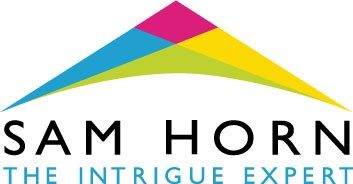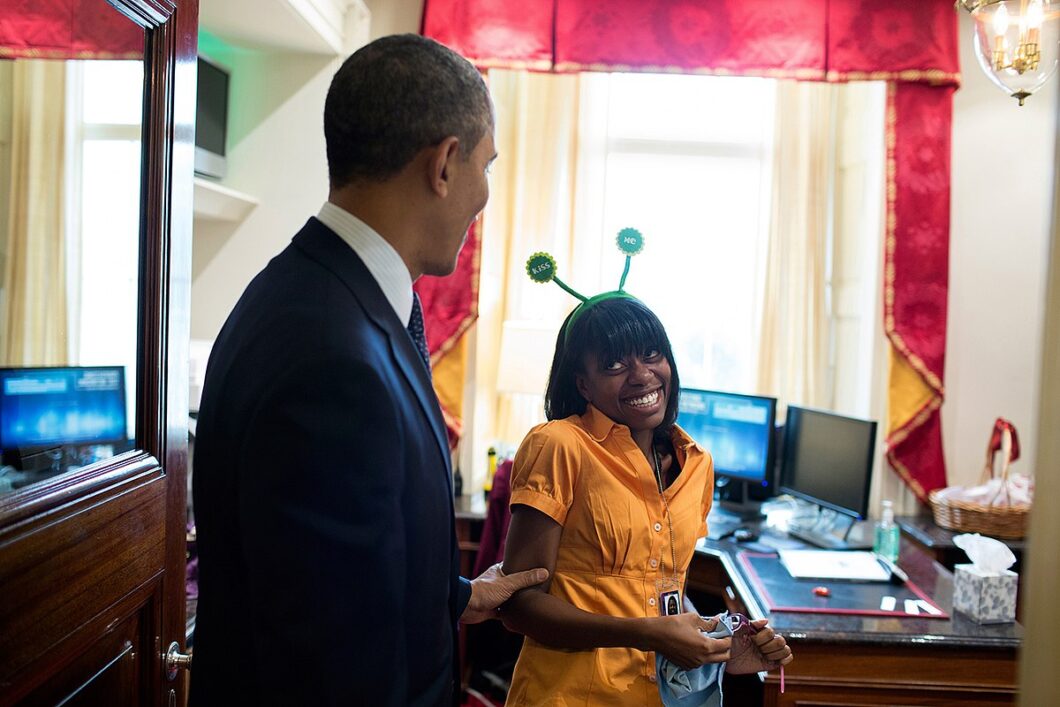Angela Tennison remembers the moment she became a Force for Good.
She was sitting on the couch in her North Carolina home, holding her baby niece when a breaking news report announced that Democratic nominee Barack Obama had just lost the pivotal New Hampshire primary.
She thought, “I want my niece to grow up in a country where she knows it’s possible to have a black President. And if people don’t step up to support Obama now, that’s not going to happen.”
So, she got up off the couch, located the number for his campaign headquarters in her area, called, and volunteered. She told them, “I’ll set up chairs, whatever you need. Just put me to work.”
That’s what they did, and that’s what she did.
And she was really good at it. They could always count on Angela to go above and beyond to get things done in a quality way on time. So, they started asking her to take on more and more responsibility, asked her to become part of Obama’s traveling campaign team, and gave her increasingly strategic roles to get the vote out.
And when Obama won, becoming our 44th President, she celebrated on the Smithsonian mall in Washington DC, along with 1.8 million people who came from around the country to celebrate this history-making event.
What Angela didn’t anticipate was that getting off the couch and making that initial phone call would lead to a request from the Obamas asking if she’d be the Senior Manager of their White House Executive Residence.
Following her years managing staff, logistics, and operations for the First Family, she was appointed to be the first Leadership Development Director at the U.S. Department of Education.
What Legacy are You Leaving and Leading?
“Being kind to people is a wonderful legacy to leave behind.” — Taylor Swift
What did Angela learn during her years in government service?
“We don’t leave a legacy, we lead a legacy.”
Legacy is officially defined as “An amount of money or property left in a will.” It is also defined as, “Something handed down from the past or from a former person.”
Angela has come to believe our legacy is not about the money we leave behind, it’s the meaning we leave behind. It’s not just something handed down from the past from a former person, it’s something that’s handed out in the present from a current person. Our legacy is not just what people think of us when we’re gone, it’s what people think of us now.
Have you ever thought of legacy this way? Our legacy is not just the enduring impact of our actions and example, it’s the immediate impact of our actions and example.
Little could Angela have predicted that her decision to get off that couch would kickstart a current and enduring legacy where she’s inspired many people to get off the couch and get actively involved in causes that matter.
Are You Leading an Intentional or Accidental Legacy?
“What is legacy? It’s planting seeds in the garden you won’t get to see.” — Lin-Manuel Miranda
When Angela realized she clearly, deeply wanted Obama to get elected, she didn’t just passively hope for it; she got up and did something to facilitate it. That’s an intentional legacy.
An intentional legacy is being clear about our vision and values, and exercising our agency to act in alignment with that and facilitate that.
An accidental legacy is pin-balling through our days, being unclear of our vision and values, being reactive instead of proactive.
Have you thought about the type of legacy you want to lead and leave? What do you want to be known for — now and in the future? What seeds are you planting?
One of the best intentional legacies I’ve ever heard is from The Good Life podcaster Jonathan Fields. At the end of every interview, (and Jonathan has done hundreds of them), he asks his guest, “So, to you, what does it mean to live a good life?”
As you can imagine, the answers have varied over the years, yet Jonathan’s response to that question is my favorite. He said, “For the people I dearly love to feel dearly loved.”
Wow. What an incredibly clear, intentional, one-sentence impact statement.
There’s a man who knows who he is and what is important to him. A man who holds himself accountable for living in alignment with his intended impact. He’s clear that his legacy isn’t something he leaves behind for people, it’s something he wants to inspire in people.
Not everyone is as intentional about the impact they want to have.
I read a shocking post from Jordan Harbinger, a Wall Street lawyer and podcaster yesterday. He wrote that a 30-something colleague had discovered his hedge fund dad had died and left him $100 million. Do you know what the son’s one-word response was? “Whatever.”
Yikes. Jordan went on to say he knows many people in NYC who are working 80 to 100 hours a week. And if you ask them why, many will say they’re doing it for their family. But if you talk to their family, they say, “I never see the guy, so he’s not doing it for me.”
Hmm. That’s an accidental legacy. We may tell ourselves we’re doing what we’re doing for a specific reason. But is that actually true? Is our intended impact in alignment with the actual impact we’re having on the people around us?
What’s Your Legacy/Mission Statement?
“Your mission statement becomes the solid expression of your values and vision. It becomes the criterion by which you measure everything else in your life.” — Stephen Covey
The good news is, it’s not too late to create a more aligned, purposeful legacy. Many of the stories in this book feature people who clarified their life purpose, and they’re holding themselves accountable for having an intentional Force for Good impact.
I hope you’re taking notes on what they’ve done and adapting it to craft your own one-sentence “/mission statement.” You will discover that stating the impact you want to have in one sentence helps you make informed decisions on a daily basis of how to spend your mind, time and dime.
By the way, I had an opportunity to be on Jonathan’s Good Life podcast. He wrapped up our interview with his signature question, “What does it mean to live a good life?”
I smiled, “I think that’s another way to ask what legacy we want to lead and leave. I’ll always be grateful to my college philosophy professor for helping me come up with my answer to that.
The first day of class he told us, ‘We’re going to study Plato, Socrates, Aristotle, but our first assignment is for you to come up with your own philosophy. I spent a week crafting my mission statement and finally came up with this: “My purpose is to make a positive difference for as many people as possible, while leading a happy, healthy, grateful life with family and friends.”
Little could I have predicted that the mission statement that professor asked us to crystallize decades ago would end up guiding my days and eventually lead to me founding The Force for Good Project. Thank you, Sir!
How About You?
- Up until now, how would you have defined the word “legacy?”
- Do you now believe legacy is not just something we leave, it’s something we lead?
- If you asked the people you dearly love what your legacy is, what would they say?
- What is your one-sentence mission/purpose statement?
- How can you be more intentional — vs. accidental — about what legacy you’re leading?

